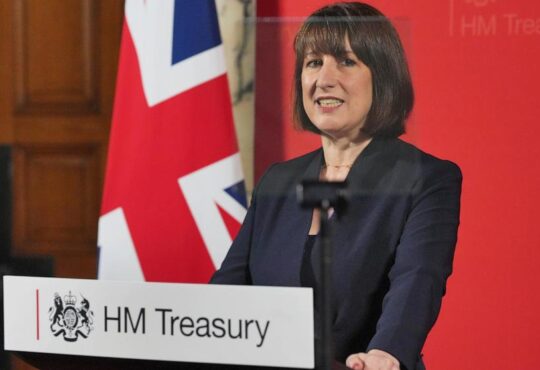In the increasingly fractious debate about the UK’s final salary pension schemes, there is broad agreement on one thing: it would be better if the proliferation of schemes was consolidated into a few, big funds.
Reformers say that would allow schemes to reduce costs through economies of scale and better bargaining power over fees. Some fans of such consolidation, which include senior politicians across the political spectrum, say it would also mean funds could invest more in UK equities and illiquid assets such as infrastructure and venture capital.
This is a much more contentious issue. Doubters argue that funds still wouldn’t want to invest more in riskier assets and shouldn’t be forced to do so by the government.
But on the costs issue there is something close to consensus. It does seem crazy that there are more than 5,000 defined benefit schemes in the private sector. It looks madder still to have nearly 90 separate schemes covering local government employees in England and Wales.
READ Toxic combo of poor regulation and UK government’s reckless budget triggered pension blow-up
That is certainly what George Osborne thought. In 2015, he announced a plan for the assets of these schemes to be pooled into six British ‘wealth funds’. The process of transferring assets started in 2018, and while the progress has been slower and patchier than hoped, two-thirds of the money is now in pooled vehicles.
So, five years on, how is it going on the cost front? Er… not well. Far from falling, costs have actually risen since the pooling process started. Total costs were £2.1bn in the year to March 2022 — up more than 22% on the previous year, according to a report recently published by the Local Government Pension Scheme. Costs last year represented 0.57% of assets of £368bn, compared with 0.43% of assets of £275bn in 2017-18.
So what is going on? William Bourne, an investment adviser who works with local government funds, says the bulk of the cost increase reflects the shift in asset allocation towards illiquids, which have higher fees, and the costs associated with setting up pooling. The schemes have also turned to consultants more, which has pushed up administration and governance costs, he says.
The shift to more private equity and infrastructure would inevitably increase costs. However, a very unflattering comparison has been pointed out by the Pension Insurance Corporation, one of the firms that companies pay to take on their DB pension schemes.
The CPPIB is one of Canada’s highly regarded public pension funds. It is roughly the same size and has a much bigger skew towards private equity and infrastructure than the LGPS does.
READ Johnson and Sunak’s rallying cry to UK pensions under fire: ‘Big bangs don’t work’
Last year, its costs were 0.27% of assets. That’s less than half the LGPS’s costs. In other words, if the LGPS was as efficient as the CPPIB, it would cost about £1bn a year less to run.
“This £1bn represents a direct transfer from local taxpayers struggling with a cost-of-living crisis to the myriad advisers and service providers employed by each of the 100+ LGPS boards,” PIC said in its recent response to an inquiry by the House of Commons’ Work and Pensions Committee.
The Department for Work and Pensions did not respond to a request for comment. But last year, it said that pooling had so far saved about £200m a year.
Joanne Donnelly, secretary to the LGPS advisory board, said that pooling was at a relatively early stage compared with Canadian funds: “It is always interesting to compare the LGPS with other large schemes, although it is widely acknowledged that large Canadian pension funds in particular are very accomplished at investing at scale.”
She added that while costs are an important factor for funds to consider, “so are broader considerations such as performance and governance factors”. As it happens, the LGPS outperformed the CPPIB last year though it still lags over the past five years.
The LGPS’s annual report states that returns have been affected by the poor performance of active equity management, which “has not delivered for most funds over the longer term”. Funds “mistime manager change and historically hired managers on the back of strong recent performance and then dispensed with them following performance disappointment”, the report says.
The poor progress on costs should put more pressure on the government to speed up the process. The chancellor has promised a consultation on the future of pooling and is likely to say more in his Mansion House speech in July.
Some observers say the government should stop pussyfooting around and simply force all the schemes to consolidate into one fund. If this is too heavy-handed, the government should at least recognise that the current system of eight pools is not working. It should make clear to schemes that they are free to move their funds to whichever pool they chose, which should concentrate the money into a few best performers.
This may or may not lead to greater investment in ‘productive’ assets. But it should at least cut costs, taking pressure off local services and taxpayers — at the expense, of course, of poor asset managers and consultants.
To contact the author of this story with feedback or news, email David Wighton






